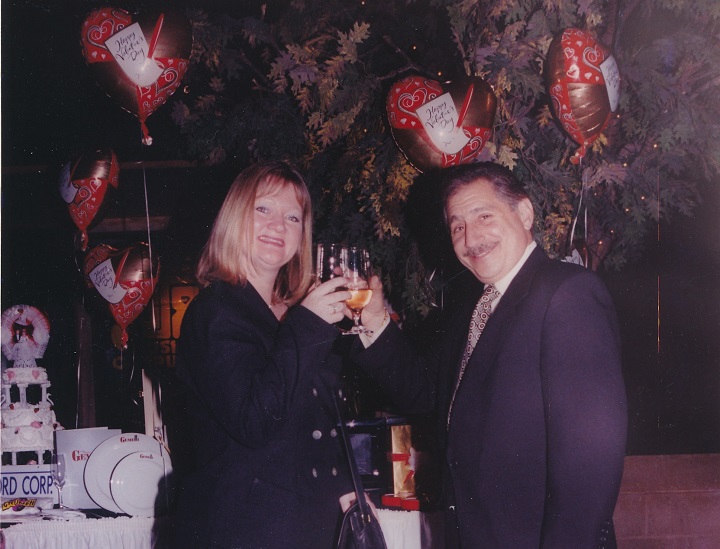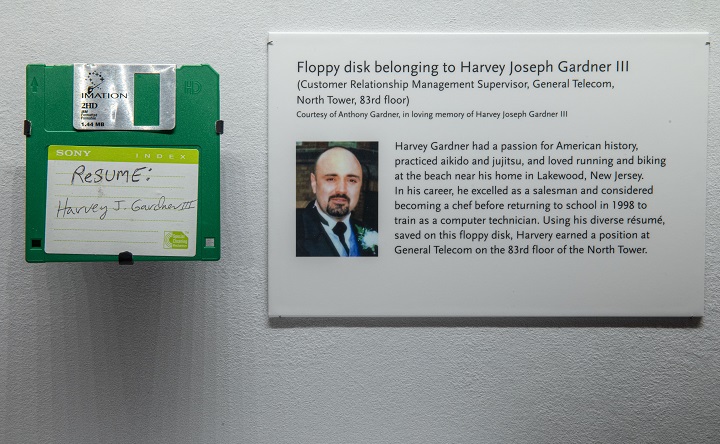Make a donation to the museum
Q&A with Mary McCord: What Everyone Needs to Know About Prosecuting Domestic Terrorism
Q&A with Mary McCord: What Everyone Needs to Know About Prosecuting Domestic Terrorism

On Thursday, February 20, Mary McCord of the Institute for Constitutional Advocacy and Protection and Seamus Hughes of George Washington University’s Program on Extremism will discuss what constitutes “domestic terrorism” and the challenges in prosecuting it during a public program at the 9/11 Memorial Museum.
In the Q&A below, McCord shares her career to date, her thoughts on prosecuting domestic terrorism, and her recommendations for those who want to learn more about this issue.
You can reserve a ticket for this week’s program here or watch a livestream of the program beginning at 7 p.m. on Thursday, February 20.
When did you begin focusing on the legal questions around domestic terrorism? Was there an inciting event or was in gradual evolution?
Although I and others at the Department of Justice’s National Security Division (NSD) were concerned about the threat of domestic terrorism and had been exploring potential legislation while I was in government, the catalyst for most of my advocacy in this area came after the Unite the Right rally in Charlottesville, Virginia, in August 2017. A violent melee between armed white nationalist extremists and counter-protestors led law enforcement to order the crowds to disperse. After this order, James Fields, who had participated with a white supremacist group called Vanguard America, drove his car into a crowd of counter-protestors, killing Heather Heyer and seriously injuring dozens more. Having left NSD just months before, after two years of watching ISIS terrorists use cars, vans, and trucks to plow down innocents in cities across Europe, I immediately recognized Fields’s acts as their moral equivalent. But under U.S. law, we can charge as terrorists those who commit crimes of violence to intimidate and coerce in furtherance of the goals of foreign terrorist organizations like ISIS and al-Qaeda, while there is no terrorism offense that applies to the same kinds of crimes of violence—intended to intimidate and coerce civilians and the government—when committed with a vehicle or firearm in furtherance of what we think of as “domestic” ideologies like white supremacy. Such crimes violate state law and might also violate federal hate crimes laws, but they are not prosecutable as “terrorism” under U.S. law. I immediately wrote an article in Lawfare about this.
How has 9/11 informed your work?
At NSD, my colleagues and I worked closely with federal prosecutors, the FBI, the intelligence community, and other departments and agencies like the State and Treasury Departments to bring a “whole of government” approach to countering terrorism, driven by the mission never to allow another 9/11-style attack to occur. That meant deploying massive resources to combatting international terrorism, which almost exclusively meant Islamist extremist violence. And it meant focusing on prevention rather than prosecutions after the fact. Criminal tools such as undercover investigations (including online undercover investigations) and sting operations, borrowed from other areas of crime prevention such as child sexual exploitation, were deployed in order to disrupt potential threats before they materialized into acts of terrorism. Charges under the statute that bars providing material support or resources to foreign terrorist organizations were routinely used in furtherance of this prevention strategy, including by bringing cases against U.S. persons attempting to travel abroad to provide themselves as fighters for al-Qaeda or ISIS.
Preventing acts of domestic terrorism presents some different challenges. The First Amendment creates extra hurdles that law enforcement must overcome—rightly—before using investigative techniques like undercover operations. The FBI may not open an investigation based solely on protected First Amendment activity, for example, but it can open an investigation when someone starts talking about committing a crime of violence or other crimes. The FBI’s recent investigation of members of a violent white supremacist group called The Base (the English translation of al-Qaeda), resulted in the arrests of several members who were plotting terrorist attacks in the U.S. They are not charged with terrorism, however, due to the gap in our existing terrorism laws.
What are some articles an interested party might explore to get a better idea of this subject?
Criminal Law Should Treat Domestic Terrorism as the Moral Equivalent of International Terrorism (Lawfare)
It’s Time for Congress to Make Domestic Terrorism a Federal Crime (Lawfare)
A Road Map for Congress to Address Domestic Terrorism (Lawfare)
The Christchurch Shooting: Domestic Terrorism Goes International (Lawfare)
Armed Militias Are Taking Trump’s Civil War Tweets Seriously (Lawfare)
Filling the Gap in Our Terrorism Statutes (George Washington University)
White nationalist killers are terrorists. We should fight them like terrorists. (Washington Post)
Have you visited the 9/11 Memorial & Museum? What was your experience?
Yes, I was privileged to be given a tour of the 9/11 Memorial & Museum when I was the acting assistant attorney general for national security. It was a profoundly moving experience and brought back vivid memories of that day. Every American should visit the Museum, and especially those who were too young to remember life before 9/11. That day changed our world in small and large ways and continues to be a driver of our approach to national security. It is important to recognize that the path of radicalization to violence is not limited by ideology and to find productive ways to engage people who might otherwise be attracted to extremism.
By 9/11 Memorial Staff
Previous Post
Months Before 9/11, A Married Couple Renewed Their Vows On ‘Top Of The World’ At The WTC

This Valentine’s Day we celebrate the marriage of Gene Cassara and Barbara Murphy, who renewed their wedding vows atop the World Trade Center in an unforgettable ceremony seven months before 9/11.
Next Post
On View: Harvey Joseph Gardner III’s Floppy Disk

A 9/11 family member reflects on how seemingly ordinary objects, like a floppy disk currently on view in the memorial exhibition, provide a tangible connection to our collective past.